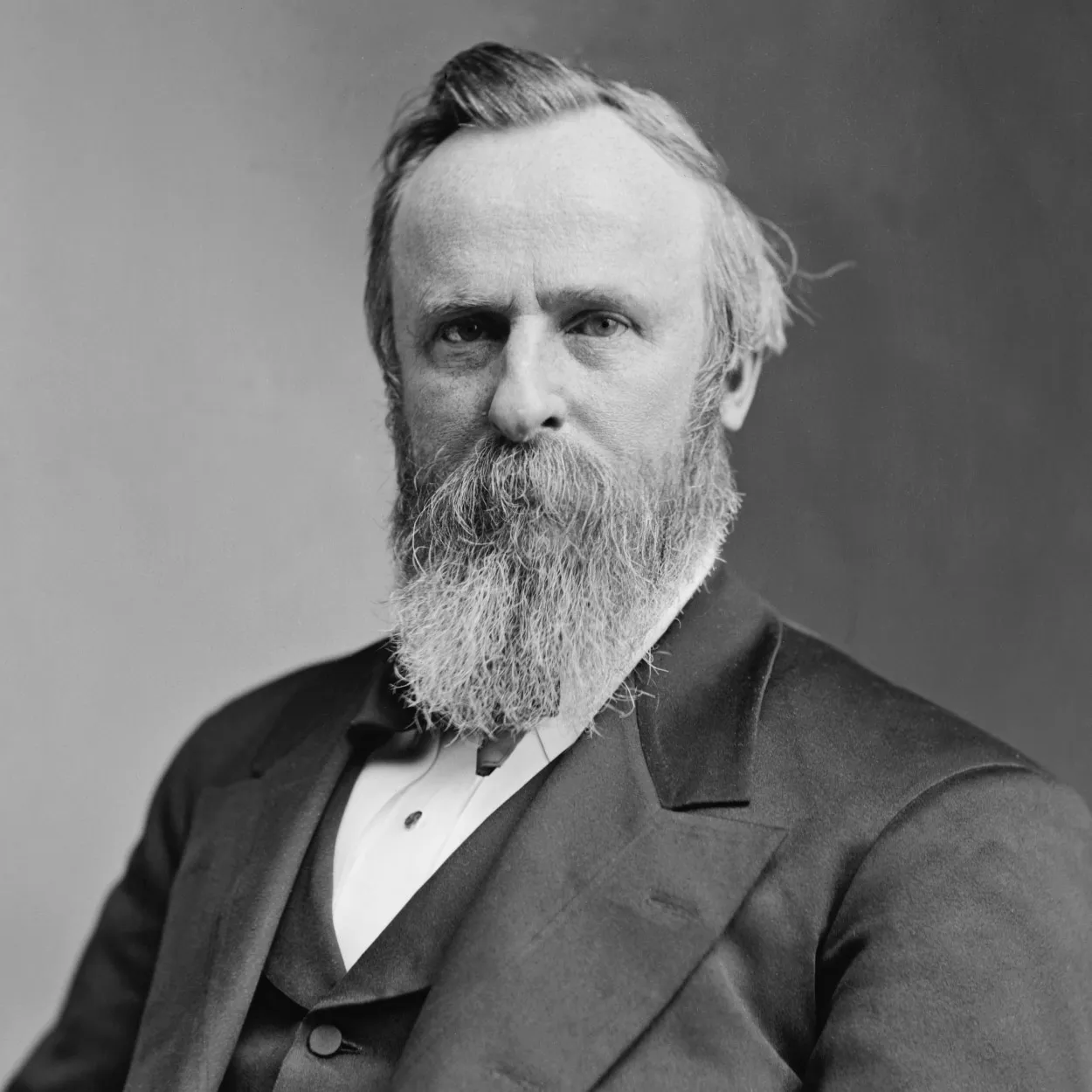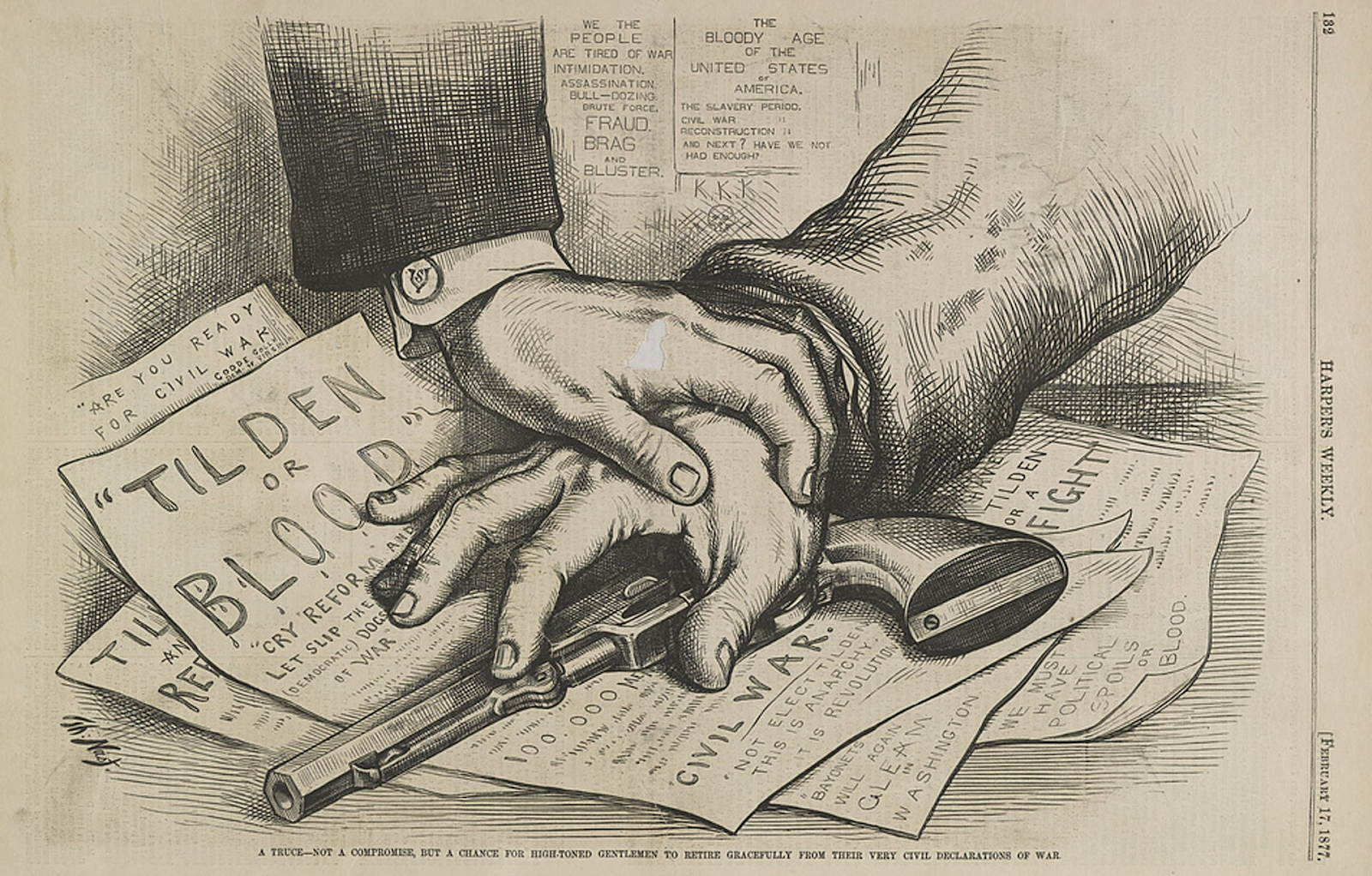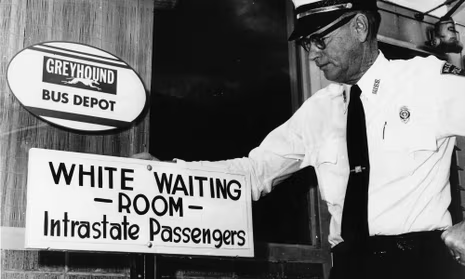Further complicating the matter was the 1776 election between the republican candidate Rutherford B. Hayes and democratic nominee Samuel J. Tilden. After the polls closed, there was no clear winner as twenty electoral votes from Florida, Louisiana, and South Carolina were disputed. Such votes held an unparalleled significance in the outcome of the election because Hayes trailed Tilden by 19 votes.
In an effort to resolve the issue, the Electoral Commission Act was passed, anointing a committee of five senators (three republican and two democrat), five representatives (two republican and three democrat), and five Supreme Court justices (2 democrat, 2 republican, and 1 independent). After intense rumination, the committee voted in favor of awarding the twenty contested votes to Rutherford B. Hayes. Outraged, southern representatives threatened to delay the results of the election through nonstop adjournments and filibusters.
Eager to reach a resolution of the 1876 election, the republican party unofficially agreed to negotiate potential concession. This eventually result of this negotiation was the Compromise of 1877 wherein the democratic party agreed to accept Haye's victory and respect the rights of African Americans on the conditions that federal troops were withdrawn from the south. Furthermore, Hayes was to include at least on democrat in the presidential cabinet and provide federal support for the Pacific Railroad. Such an agreement is appropriately deemed the end of the reconstruction era as it lead to the consolidation of the democratic party.
Unfortunately, the southern democrats would fail to uphold their agreement to respect the rights of African Americans. Expectedly, the liberties of black citizen were frequently encroached upon in the South. In Louisiana, there was a law that forbode African Americans from riding on the same train cars as white people. Notably, the train cars designated to colored citizens were of inferior quality.
Outraged, the black community sought to resist the unjust law through judicial review; it was thought to be abundantly clear that the Louisiana legislation clearly violated the "equal protection" clause of the fourteenth amendment. Determined to contribute to the fight against racial injustice and bring the law under the scrutiny of the supreme court, Homer Plessy bought a first class tickets and boarded a white-only passenger car.
After refusing to leave, Plessy was arrested and tried for breaking the law. In the regional court, Judge John Ferguson convicted Plessy. In response, Plessy sued the judge on the basis that the Louisiana state law was unconstitutional. The ensuing proceeding was a landmark case that left its mark on American history for nearly a century.
From a historical perspective, it was argued that the movement from slavery and discrimination was unstoppable. The petitioner asserted that told that segregation was a holdover from a time that should be left behind while simultaneously reasoning that the court had the ability to stand in the way or walk with social change. In a rebuttal, the respondent asserted that segregation is a necessary component of society as long as it did not hurt either race. Additionally, it was argued that the decision on segregation should be left to the states.
From a economic standpoint, the defense argued that Black Wall Street proves separation is beneficial for both races. Furthermore, integration would be harmful to the safety and security of both races. It the prosecution declared peaceful coexistence is impossible and a stark change would put the stock market at risk of collapse.
In opposition of these arguments, the petitioner argued that the cost of separate facilities would double expenses and the nation as a whole would fail to progress due to a monetary deficiency. It was also argued that the overall quality of products would go up if segregation was outlawed since the entirety of funds would be directed into a singular service instead of two.
The most powerful argument for Plessy came from the constitution which asserted that all men are created equal and endowed with unalienable rights such as life, liberty, and the pursuit of happiness. Additionally, Plessy's team reasoned that to ignore a clear violation of the fourteenth amendment would unravel the fabric of democracy. In an attempt to rebut these claims, the state argued that the fourteenth was not intended for social integration. It was argued that the fourteenth implied equal rights for African American, but did not demand social equality. Following this logic, it was reasoned that as long as facilities were equal, segregation was to be permitted.
In the 1896 decision by the Supreme Court headed by Melville Fuller, the Louisiana state law was upheld, creating the "separate but equal doctrine" and commencing the Jim Crow Era. However, in the 2024 court with Judge Dean Smith residing, it was determined that the state was not being neutral; there was clear disparity between black and white cars which shows the races are not treated equal under the law. For these reasons, the impartial and merciful Judge Smith juxtaposed the 1896 verdict, ruling in favor of Plessy.










No comments:
Post a Comment